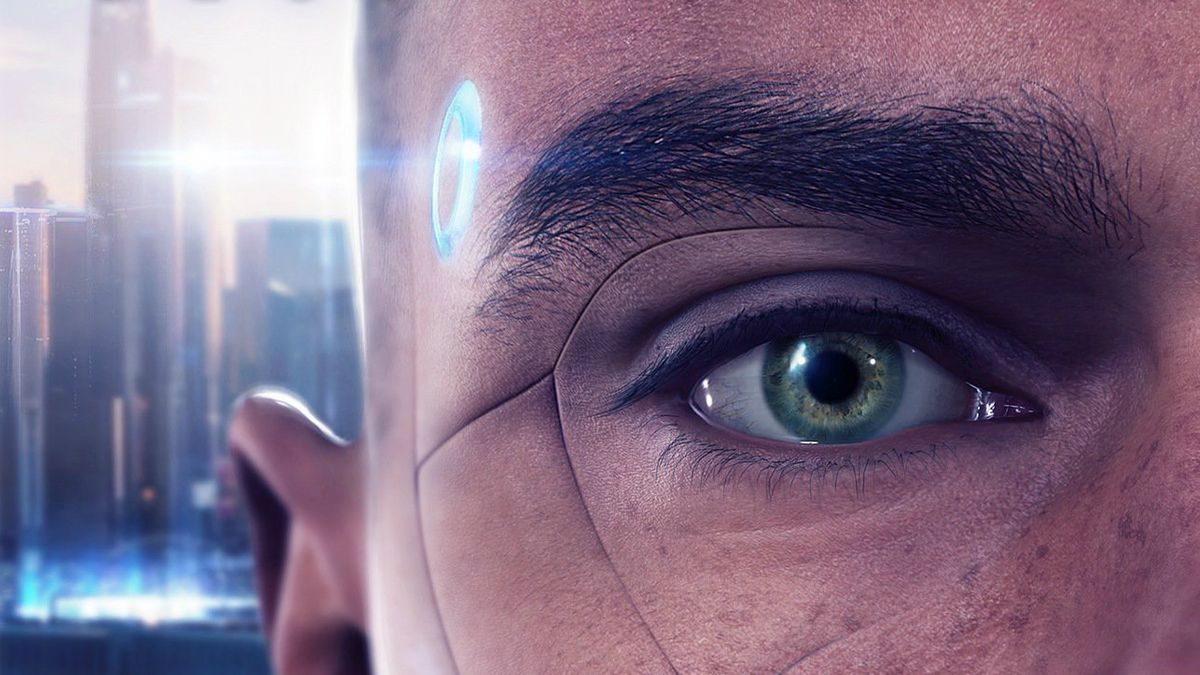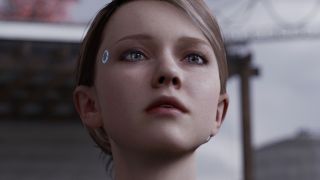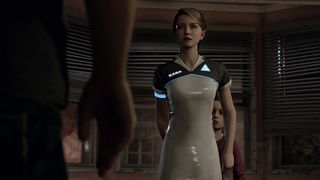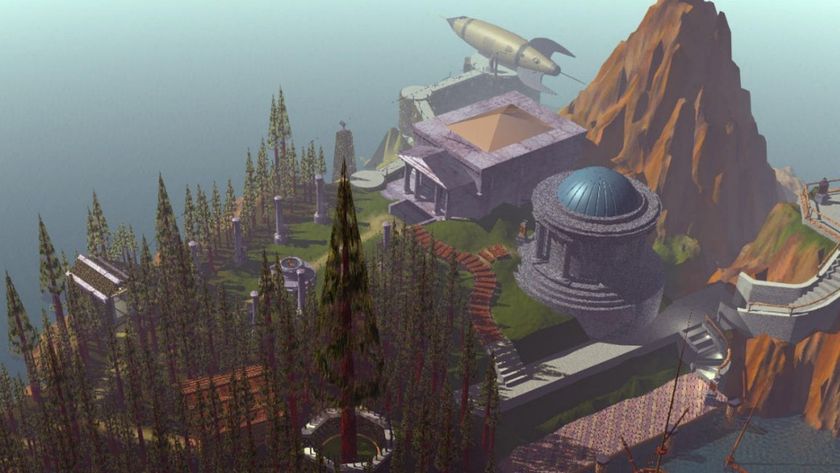How realistic is Detroit: Become Human’s android-filled future? The experts weigh in
Creating intelligent machines and humanoid robots has been a long-time dream for humanity, but just how realistic is Detroit: Become Human’s android-filled future?

The idea of creating artificial life is certainly not a new concept. In fact, humanity has depicted automated beings in both art and literature for centuries, but it’s only relatively recently that we’ve started to develop these exciting, new technologies. The futuristic field of robotics has grown significantly since the dawn of the 20 century, with various machines being used in hostile environments, manufacturing processes, and medical research facilities. Our world may be far from the android-filled future of Detroit: Become Human, but as research and funding grows, it could one day become our reality. Of course, creating new life comes with myriad new responsibilities and ethical dilemmas – areas that game director David Cage is keen to echo throughout his tale of man vs machine.
The biggest theme in Detroit: Become Human is how androids are treated by the humans around them. When walking through the virtual streets of Detroit, you’ll see designated parking bays where androids can be left to stand idle, segregated areas on public transport, and a plethora of unsavoury characters who share a hatred for man’s humanoid creations. At one point, the game even takes a controversial stab at how androids develop and adopt their very own civil rights movement. Futurist and renowned AI author, Martin Ford sees this depiction as something that could potentially happen in the future. “Yes, it's possible if machines someday achieve human-level intelligence as well as consciousness,” he says. “If a machine is conscious then it has the capability to suffer. Enslaving it or otherwise mistreating it would be very problematic. For this reason, we may choose to build robots for many uses that are not so intelligent or conscious.”

However, Professor Nadia Magnenat Thalmann, the director of MIRALab and long-time developer in humanoid robotics doesn’t share this belief. “I see any machine as a machine. A high level simulation tool but nothing real,” she notes. “Of course, a robot may be an intelligent actor, capable of adaption, but it has no self-awareness, no self-complexity, no behavioural traits, and no sorrow. It literally has nothing to compare with a real human. It’s as if a laptop with AI programs would suddenly have human rights. For me, it is nonsense… even if the game proposes machines have emotions, this is just a simulation of those emotions.” Back in 2013, Nadia revolutionized robotics by unveiling the world’s first social robot. Nadine is an incredibly life-like humanoid that is able to return greetings, hold multilingual conversations, make eye contact, recognise people it has previously seen, and can even simulate emotions through facial expressions and gestures. But it’s only a simulation, even if it is a frighteningly realistic one.
So if AI can only hope to simulate human features, emotions and wider characteristics, our synthetic friends may be out of luck when it comes to starting their own robotic revolution, but what about the mass waves of unemployment that are shown throughout Detroit: Become Human? After all, labour-saving machines have already started to impact nearly all facets of our working lives. You need only take a trip down to your local supermarket to see how self-checkout services are replacing cashiers, while both the food and automotive industries employ automated services to keep up with product demands. “I think unemployment and, certainly, increased inequality is a real concern,” says Martin. “However, the threat is not for the most part going to come from humanoid robots – instead, it will be self-driving vehicles, factory, warehouse and fast food automation, and perhaps especially, smart algorithms that can do white collar jobs and tasks. Eventually, I think the impact could be so significant that we will need to consider a basic income or some similar scheme.”

A recent report from the Paris-based Organisation for Economic Cooperation and Development (OECD) found that 14% of jobs across 32 developed countries were highly automatable, while a further 32% of jobs have a risk of changing in the way they are carried out. Of course, new technology has always had a monumental impact on our working lives, but this advancement is taken to a whole new level in Detroit: Become Human. By 2038 androids are utilised in every job sector. They are taxi drivers, household carers, shop assistants, medical assistants, labourers, soldiers, law enforcers, and even adult entertainers. Nothing is off the table for our automated counterparts. As a result, a staggering 37.3% of Detroit’s population is unemployed. This figure seems exceptionally high, but when you have an intelligent workforce that never needs to eat or sleep, there’s bound to be a dilemma.
“There will be a shift again in manpower and I do believe that new job requirements will be needed,” admits Nadia. “Who will fabricate the robots? Who will manage all the data? Who will do the programming? Who will carry out interaction tests? There will be new jobs and skilled people in various areas will be needed.” Detroit: Become Human never really digs too deeply into this area, but we do get a glimpses of how certain workspaces function alongside android technology. After all, the buddy cop drama between Hank and Connor is one of the strongest parts of the game’s narrative and wider themes. For many though, sharing a job with robotic colleagues is simply not an option, especially for those who work outside of specialist fields. For example, Detroit’s Todd Williams lost his job when self-driving cars became popular in 2021, before androids eventually came and replaced his subsequent roles as a labourer, bouncer, and security guard. It’s a problem humanity may have to contend with in the future and the thought of being made redundant by our own creations adds a layer of existential dread to the mix.

“This is a question that we may eventually have to face,” says Martin. “Some futurists like Ray Kurzweil believe we will merge and become one with the machines. Others think advanced AI will eventually replace us and that it’s simply a normal part of the process of evolution. However, I think those concerns are very premature and that our focus ought to be on understanding and adapting to the more immediate challenges associated with advancing AI. As the field advances, we will learn a great deal that, hopefully, will enable us to address even greater challenges down the line. Overall, I am optimistic that AI will be a net positive for humanity and that it may prove to be the ultimate tool that enables us to solve some of our biggest problems.” It’s an incredibly exciting prospect and one which will come with numerous hurdles, and while CyberLife’s highly-intelligent, multi-functional androids may be a distant dream, both experts believe that one day we will see a future where a elements of Detroit: Become Human’s fictitious world will become part of our wider reality.
Sign up to the 12DOVE Newsletter
Weekly digests, tales from the communities you love, and more
Want more? Here are the best PS4 games currently available in 2018.
James Busby is an experienced journalist who has written for sites like 12DOVE, Kotaku, Red Bull Gaming, and many more. James has a BA (Hons) in Journalism, and can usually be found writing news, reviews, and guides over at Dexerto.

Pokemon Platinum's most obscure feature was a reward seemingly given to just 20 players lucky enough to participate in a complicated limited-time event with a lottery prize

37-year-old studio behind iconic PC game Myst and one of the longest-surviving indies in the world just laid off "roughly half the team"











